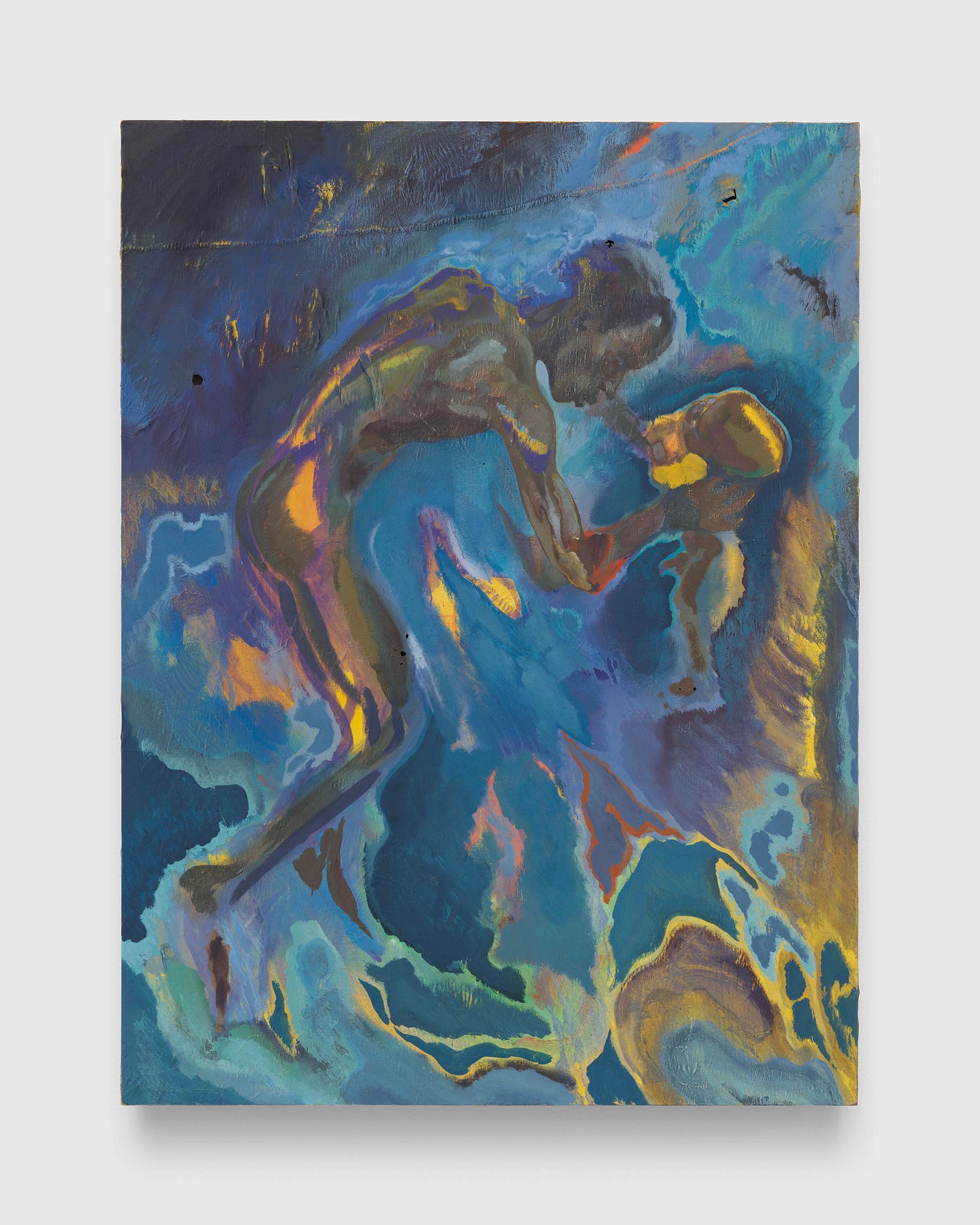
A few weeks ago, I was thrilled to attend a very glitzy and glamorous dinner thrown by Marie Claire in collaboration with the organization Moms First to celebrate the magazine’s Motherhood Issue. Last year, I wrote for Marie Claire while I was mid-journey transitioning my hair to its natural texture, and the context of doing that in front of - and partially inspired by - my small daughter. I don’t think of myself as much of a public figure, and I was genuinely honored to be included in this celebration, and to fully confront my impostor syndrome for an evening.
The immersion therapy of working in sales in my formative years has given me the gift of gab, and there are very few people whom you could not plop me down in a room with that I wouldn’t find a way to talk to, despite my crippling social anxiety. This makes me a pretty useful dinner party guest because I can sit just about anywhere, and ‘anywhere’ is exactly where I was placed during this dinner: at a table full of people I had never met before.
The next day, I called one of my closest friends to laugh about the experience. I think partially due to how younger people’s (< age 50) brains have been rewired to “consume content” instead of “have discussions”, I have found lately that people often have a hard time starting up a conversation with someone they don’t already know! Opening a conversation with anything more original than “so what do you do?”, or finding questions to ask that build and develop an interesting conversation can be very challenging for many people, and as we retreat further into the digital sphere and experience less day-to-day casual human contact, this has grown more pronounced. In the time I was at dinner, I chatted merrily with my lovely table mates, who peppered in compliments about my conversational skills (“that is such a good question, no one ever asks me that!”, “what a nice way to ask!”), but I think in the space of the hours I was there I was only asked one or two questions about myself, and they were both responsive to questions I had already posed. What about you?
I called my friend, who is exceptionally socially gifted, to laugh with her about how challenging these situations are, and she made the wisest observation I could have hoped for.
“They’re just so happy you gave them a job,” my brilliant friend said, and explained sympathetically “most people are so nervous in social situations and especially around strangers, and if you are able to start a conversation and be the steward of that conversation, they will just be so happy that you took the wheel and gave them a job or a role to perform, and that they don’t have to be in charge.”
After I reflected on this, I realized I had made the assumption that the people I’ve been talking to just didn’t care enough to ask me any questions in return. I hadn’t considered that other people might be as anxious as I am, or that I might hold the social power in any conversation simply by feeling comfortable yapping.
You guys, we are in such a sad state, right now, “we” being humanity. The isolation, the weathering of constant media exposure, the illusion of convenience and the way all of this is destroying our resilience… It comes from every direction like a firehose, and we are all unhappier because of it. This state of being has all also caused me to deeply interrogate how I engage with all humans, and even more deeply over this season as I conduct this spring soul cleaning.
Here’s what I’m working on as I think about how to engage with the people around me:
“Drink water and mind your business”. The above assessment of Tracy Chapman’s purported beauty routine has lived on in my mind for more than a year now, and every time I find myself about to engage with someone’s Mean Girl behavior or some baity nonsense from a person who is ill-intentioned and fighting their own demons, I channel this video. Adult bullies are genuinely unsaveable, and engaging in bad-faith arguments from antagonistic individuals is a choice, and you can opt out of dealing with either at pretty much any moment.
“Assume everyone is in pain”. A while back, another very wise friend of mine posted this sentence to her Instagram stories, and it is still the simplest, truest thing. Nearly everyone you interact with in your every day life is working with some kind of pain. Is that pain equal to yours? Maybe. Maybe not. Maybe it’s far, far greater. Or maybe it’s a pain you would kill to trade yours in for. But I am never going to be able to objectively assess someone else’s pain or the reasons for their pain, and there is no use in trying.
Such a nice sentiment right? What does that actually mean in practice? It means that in a variety of situations, people will react different depending on the personal experience they are working with. I cannot possibly know the scope of someone’s personal experience. Rather than writing someone off as a bad person for behaving in a way that works in concert with their pain, I can give grace and make space to understand where they are coming from. And whether they are friends or colleagues or absolute strangers, I have a pro tip: that’s absolutely never possible to do online. Which leads me to:
IRL > > > > URL I love the internet! I use it as ethically as possible and for very, very specific reasons. It is an amazing tool to bring people together around a common interest, and if you keep blinders on and know how to focus, you can harness all of the tools that run on it for good. All of that is a lot of work.
I say this constantly and forever: too many people perceive social media to be a 1:1 accurate and comprehensive representation of a person’s life, thoughts, interests, etc. EVEN THOUGH they are fully aware that their own social media channels do not portray a 1:1 accurate comprehensive representation of their own life.
Someone who knows for a fact that their own presence on the internet is a heavily edited picture from a partially-open window to a severely obstructed view will simultaneously hold friends and strangers to absolutely unreachable para-social standards. I have lots of lovely internet acquaintances whom I know only through my phone and laptop, and I’m not saying that they are actively deceiving me or that they are nefarious in their representation of themselves. What I am saying is, it is my own responsibility to not assume that I know more about someone than I do from how they represent themselves through a box that is quickly making us all dumber.
Be in real life! Exercise your conversation and curiosity muscles. Release people from inequitable expectations. Assumptions are the mother of all fuck-ups, and the grandma of most resentments.
That’s what I’m working on with how I engage with the world.
Catch up on this series by reading Part 1 about Consumption or Part 2 about Support, and in the next few weeks look out for the finale to this series, Part 4 about Person-to-Person Behavior.
And now: The Secret to the Perfect Pair of Jeans
This is the first paywall-protected content I am producing, because this very special secret must be gatekept!
Keep reading with a 7-day free trial
Subscribe to Anja to keep reading this post and get 7 days of free access to the full post archives.






